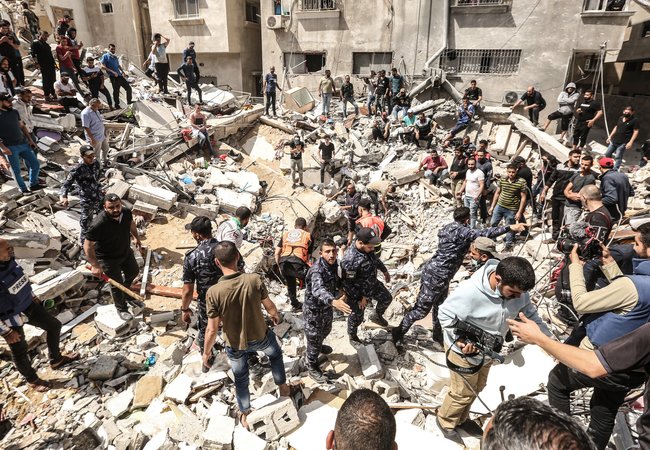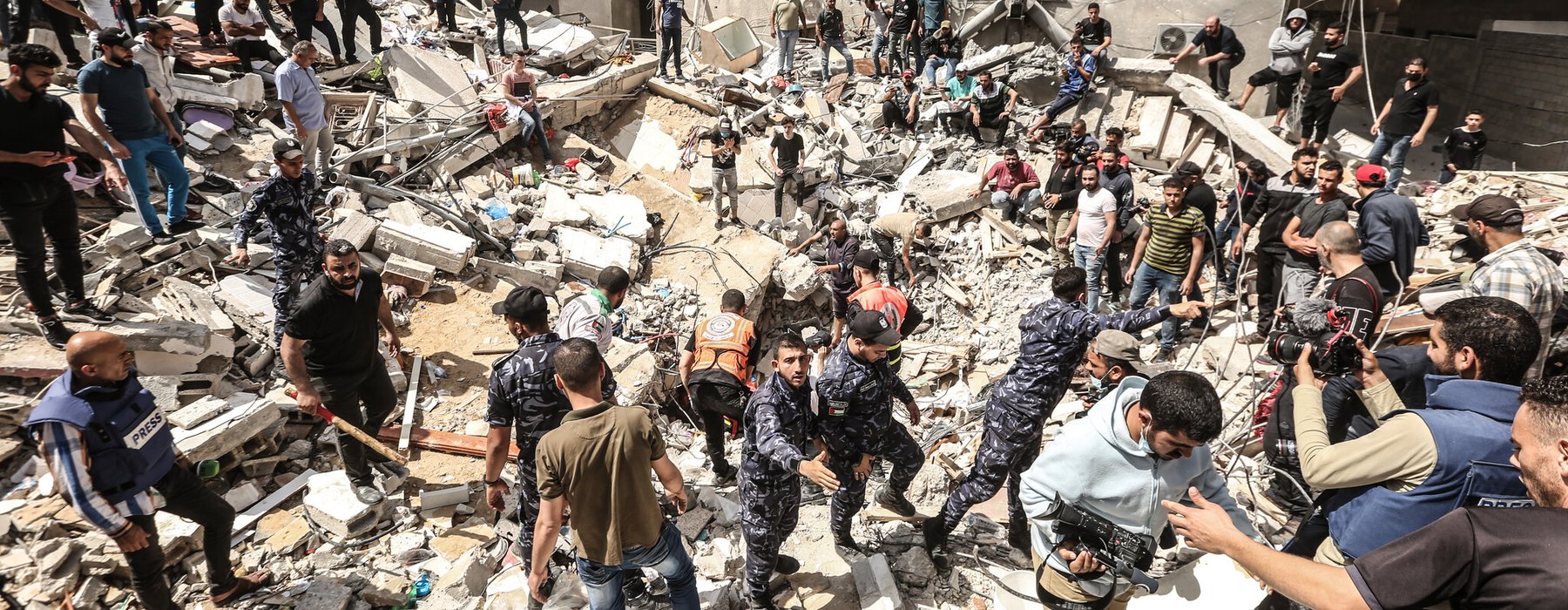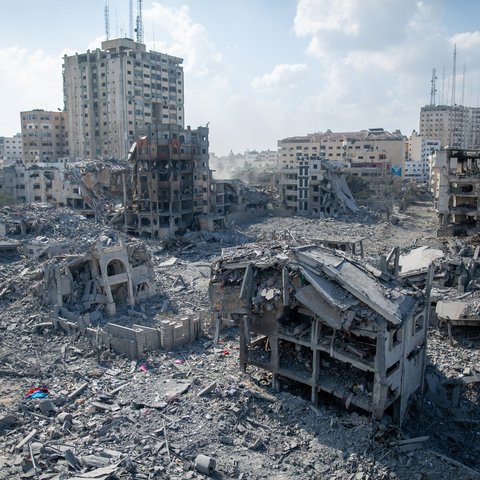The ceasefire in Gaza has not stopped Israel’s collective punishment of the territory’s population. Palestinians are still being killed, and people remain vulnerable, scared and deliberately deprived, amid the unimaginable carnage of destruction.
I’ve been back home in the UK since just before the ceasefire was declared, but in my thoughts, I’m still in Gaza. It’s welcome relief that the bombing has mostly stopped, but how can I celebrate when so many people are gone?
Given that independent legal experts have found plausible evidence that Israel has committed genocide, the legal and moral emergency makes this a time not to celebrate, but to act.
I’ve been into Gaza three times since October 2023. While I was there in September, Israel issued an illegal forced displacement order for the whole of Gaza City - an area in the grip of famine - demanding that a million people evacuate their homes and shelters.
I watched as my colleagues had to pack up their lives again, losing their last shred of hope. I had followed them through displacement after displacement over the past two years, through the joy of returning home, trying to rebuild, grieving, surviving a famine - only to be displaced again.
They cried. I cried. Many people described this moment as “the end”.
Yet despite relentless bombardments from land, sea and air, despite famine and food prices more than triple what I pay at my local supermarket, many didn’t flee. Some couldn’t. Many were simply too exhausted. Others chose to stay.
“I’d rather die at home,” I was told repeatedly, “even if that’s now a tent on rubble where my house used to be.”
Over those days, Israel ordered countless “with immediate effect” forced displacement orders, giving GPS coordinates on social media or leaflets dropped from the sky. I saw my colleague frantically mapping zones against the locations of our staff, most of whom didn’t have internet or data.
He would call them, one by one, alerting them of the need to move immediately. It was the most harrowing work I’ve ever seen.
For those who did flee south, the journey was chaotic. Children burned plastic to make bootleg fuel, filling the air and their lungs with dense, black, toxic plumes of smoke.
In camps with no toilet facilities, families dug holes in tents to relieve themselves with what little dignity they could muster. In homes where plumbing still worked, strangers queued to use toilets.
No meaningful peace is achieved by stopping a genocide that should never have been allowed to happen.
This crisis comes with the complicity of political powers, including my own government in the UK, whose continued arms transfers to Israel violate its responsibilities under international law.
Palestinians in Gaza have lost children, parents, homes, jobs and communities. One of my dear friends lost her two sisters, and their 12 children, in a single strike.
Despite promises to open all of Gaza’s crossings to allow the flow of aid and commercial goods at scale, Oxfam has continued to see our requests for even basic supplies repeatedly rejected. Things like rice, honey, biscuits, soap, sanitary pads and desalination units for safe drinking water remain stuck in warehouses - heartbreakingly close to the people who need them most.
There has been a slight increase in commercial goods, and Oxfam and our partners have been able to scale up digital cash and voucher programmes to help people buy the basics; however, limited price reductions mean prices are still too high for most.
There are things I will never forget. One is that Oxfam had food stuck just outside Gaza, while mothers sat with their children dying from hunger. I won’t celebrate while those who blocked our food from entering are not held to account for those who died as a result of this horrific deprivation.
I will never forget my colleague speaking about her four-year-old son; how he told her he wanted to be shot so he could go to heaven, because then God would give him a banana. He’d been asking for a banana for months, as food was blocked from entry.
I will never forget watching a colleague leave the office after learning his nephew had been killed, returning to his work the next day. Or the story of Tasneem, a psychosocial support worker with our partner organisation, Juzoor, who was killed with her own three children in an air strike. She was pregnant.
How can I, or anyone, celebrate a ceasefire that came two years too late - in a war where no family survived intact, and the world’s moral compass was tested and failed?
A ceasefire itself cannot fix the lifelong implications of famine for a child, or the grief of a family that does not even have the body of a loved one to bury, or the trauma carried by those who survived, which will endure for generations.
A ceasefire without representation of everyone at the table limits its success immeasurably. History has shown us this. When I look at the players who want to rebuild Gaza, they are all men, and none appear to be Palestinian. Palestinians, and Palestinian women in particular, must lead decision-making about their future, and the future of their families and communities.
A ceasefire without accountability under international law is hollow to me. No meaningful peace is achieved by stopping a genocide that should never have been allowed to happen. Until this ceasefire comes with real justice for Palestinians and a reckoning for those who stripped them of their humanity, celebration would be a betrayal of all they have lost.
Ruth James is Oxfam’s Regional Humanitarian Coordinator for the Middle East and North Africa. She has previously worked on humanitarian programmes in several countries including Nigeria, Afghanistan, Iraq and Nepal. She deploys regularly to countries in the region where Oxfam has on-going programmes, and to respond to new emergencies.
This article first appeared in Middle East Eye.




